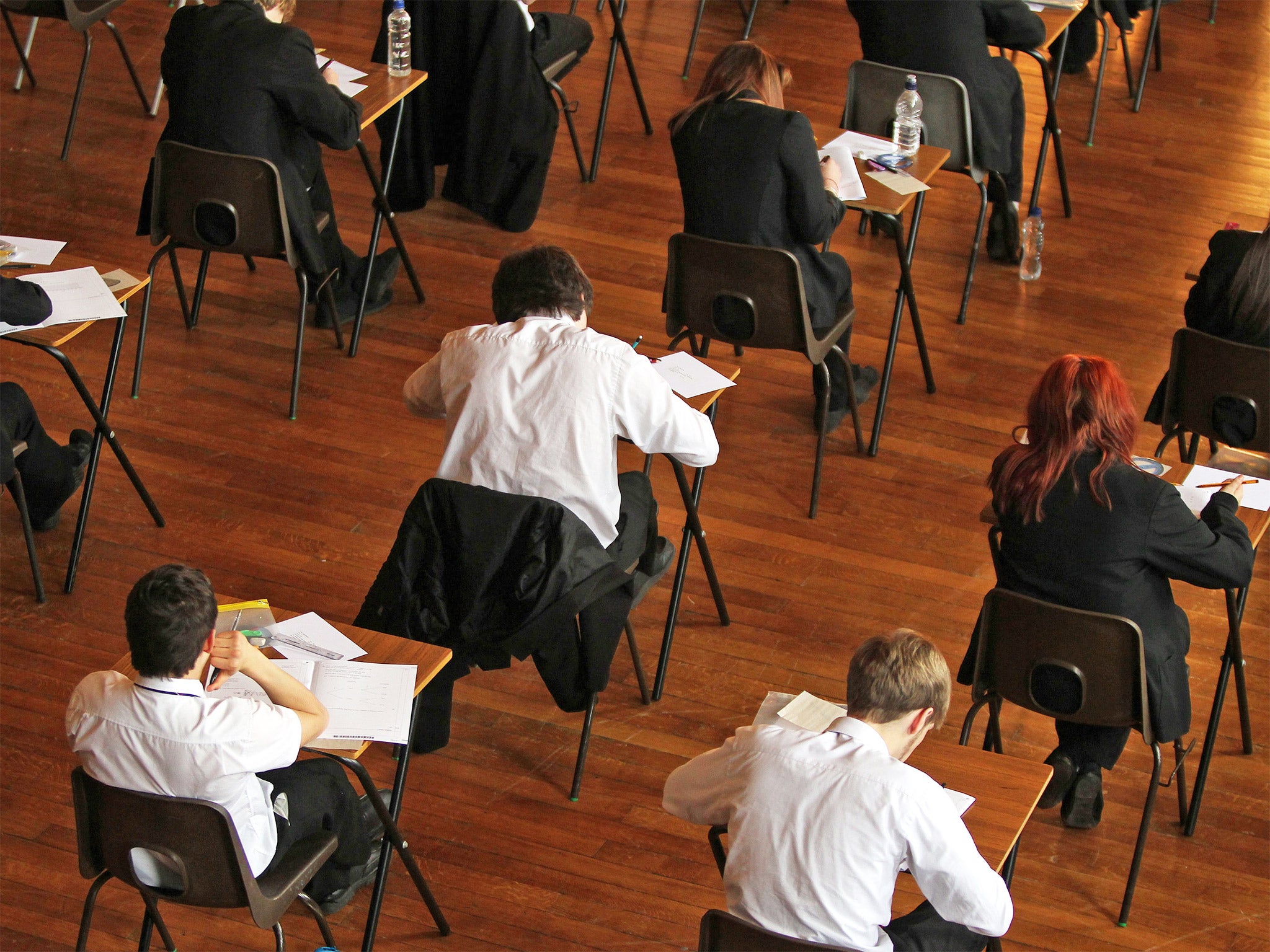'Off-rolling': Fifth of teachers have seen schools remove students through backdoor to improve results
Two-thirds of respondents were aware of the practice taking place

Your support helps us to tell the story
From reproductive rights to climate change to Big Tech, The Independent is on the ground when the story is developing. Whether it's investigating the financials of Elon Musk's pro-Trump PAC or producing our latest documentary, 'The A Word', which shines a light on the American women fighting for reproductive rights, we know how important it is to parse out the facts from the messaging.
At such a critical moment in US history, we need reporters on the ground. Your donation allows us to keep sending journalists to speak to both sides of the story.
The Independent is trusted by Americans across the entire political spectrum. And unlike many other quality news outlets, we choose not to lock Americans out of our reporting and analysis with paywalls. We believe quality journalism should be available to everyone, paid for by those who can afford it.
Your support makes all the difference.More than fifth of teachers have witnessed school pupils being effectively excluded through the back door in a bid to boost exam results, a new survey has revealed.
In total, 21 per cent said they had seen “off-rolling” occur at their school. The practice sees students taken off the register using informal exclusions, to ensure results are not brought down.
The survey of teachers was carried out for schools watchdog Ofsted by the well known pollsters YouGov. The findings were released as tens of thousands of students are set to receive their GCSE results later this week.
Ministers have previously spoken out against the practice which has become a growing concern for Ofsted, amid claims that schools are playing the system to improve their league table position.
The survey, of more than 1,000 teachers, found that 11 per cent had seen off-rolling in their current school and another 10 per cent said it had happened at one of their former schools.
Meanwhile, 45 per cent of teachers said they had heard of it happening in the system – meaning that two-thirds of the teachers surveyed were aware of the practice taking place.
Last month, the Commons Education Select Committee warned an increasing number of students were being “abandoned” by the schools system due to a rise in formal exclusions and off-rolling.
Education secretary Damian Hinds later condemned the practice saying that he heard “many stories” of schools using informal exclusions to get rid of pupils with special educational needs (SEN).
A recent report by the FFT Education Datalab research company found that thousands of children in England are missing from official education statistics after they were removed from schools before they sat their GCSEs.
Researchers called for school league tables to be weighted to take into account the amount of time a child had spent at each school to reduce the practice.
Ofsted has developed a model to see where exceptional levels of pupils have been moved before their GCSE exams.
Meanwhile, the government has launched a review into permanent exclusions - after the numbers have risen to its highest point in nearly a decade.
An Ofsted spokesperson said: “Amanda Spielman has made her concerns about off-rolling very clear, including at the launch of her first annual report last year. By including this question in our teacher attitude survey we are able to better understand the scale of the problem and teachers’ first-hand experience of the practice.
“Under our current inspection framework, where inspectors find there has been a unusual patterns of off-rolling this will be considered as part of the leadership and management grade."
A Department for Education spokesperson added: “Informal or unofficial exclusions are unlawful and the number of children being excluded is lower than it was ten years ago. Any decision to exclude a pupil should be reasonable and fair, and permanent exclusion should only ever be used as a last resort. Our statutory guidance for schools is clear that they must consider the underlying causes of poor behaviour before excluding a pupil.”
Join our commenting forum
Join thought-provoking conversations, follow other Independent readers and see their replies
Comments